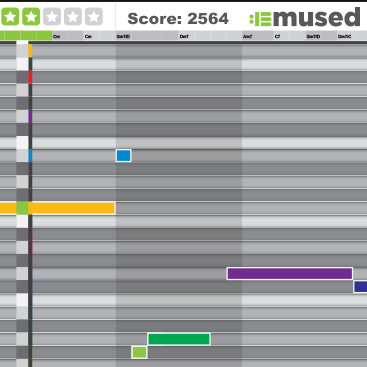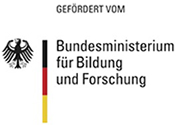
Why is Emused relevant ?
The rapid development of music technology in the past decades has inevitably changed the way people interact with music today. The means of music consumption have changed, most notably due to the constant availability of digital music via the internet and mobile applications.
Additionally, the technology for music production has moved almost entirely to the digital domain. This evolution made music production technology affordable for individuals and put the ability to create and distribute music in the hands of the average music lover. It was only to be expected that these technology changes would also influence other fields of research and the application of music technologies for the purpose of music education began to draw further attention.
However, the development of new applications for music education faces many challenges:
- The development of robust and efficient algorithms that can help in music practicing.
- Bridging the methodical gap between music education and music technology.
- Design of appealing and entertaining applications that motivate the users while developing real musical skills.
This project is the continuation of a long-term research conducted at the Fraunhofer Institute for Digital Media Technology IDMT on the development of Music Information Retrieval (M?IR) technologies for music education games.
The Songs2See project was the starting point of this research line and the EMused project builds upon the findings of Songs2See.
Research topics
- Automatic pitch detection: this field of research deals with the automatic detection of the pitch or fundamental frequency played by a given musical instrument. In the case of Emused, a pitch detection algorithm is needed to analyze users' performances and determine whether they are correctly playing a given exercise. The biggest challenge faced by Emused in this field is to be able to develop a robust algorithm with real-time functionality able to extract pitch from any musical instrument.
- Automatic music transcription (AMT): automatic music transcription is the process of converting an audio recording into some form of musical notation. It is considered one of the most challenging research tasks in Music Information Retrieval (MIR) research and has received a lot of attention from the research community in the last years. AMT is relevant within the Emused project as flexible algorithms need to be developed
- Gamification: this field of research investigates the use of game thinking and game mechanics in non-game contexts. The main goal of gamification is to achieve user engagement in solving a given task. In the context of the Emused project, we approach music improvisation from a gaming perspective. Different game elements, game mechanics, and game adaptation techniques will be investigated within the project to develop and application that can effectively teach music improvisation while keeping users engaged.
- User Experience & Usability: these fields of research deal with the interaction of the users with a give system. User experience (UX) involves a person's behaviors, attitudes, and emotions when using a particular product, system or service. Usability refers to the ease of use and learnability of a given application. Within the Emused project, we will follow an iterative design process that evaluates users'response to the application and tries to optimizes the design to provide a better learning experience.
- E-Learning: is the use of electronic media, educational technology, and information and communication technologies in education. The central point of E-Learning is to facilitate the learning process through the use of technology. Within the Emused project, we will investigate strategies to better address music improvisation learning, as well as instructional design, and cognitive load.
- Automatic Content Generation: this field of research deals with the development of methods to automatically create or compose music. It is also referred to as Algorithmic Composition and it is closely related to a more general field of research called Computational Creativity. Within the Emused project, algorithmic composition will be studied to develop algorithms to automatically generate practice content for the user. The main challenge in any algorithmic composition task is to be able to create music which is pleasant to human listeners. An additional challenge for the Emused project is to be able to create music that exemplifies musical elements, such as chords and scales, which are needed for improvisation.

Impressum
Privacy policy



